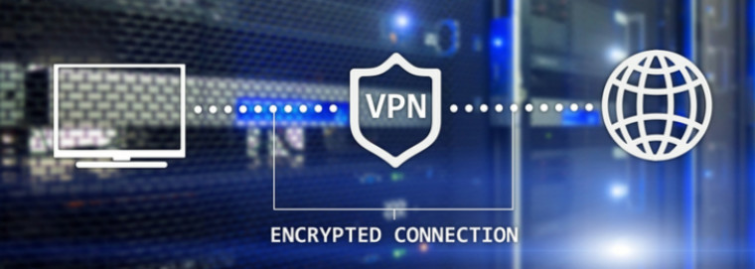Vietnam is being severely criticized for a newly passed cybersecurity law that hinders freedom of speech and outlaws the act of criticizing the government.
The law, which came into effect on Tuesday, is seen as a way to quell dissenting voices. It closely mimics the oppressive internet policies found in neighboring China. The totalitarian legislation also forces Internet Service Providers to hand over citizens’ metadata and web browsing histories if approached by the authorities.
Activism and Protests
Since the law went into effect, human rights groups and activists have begun protesting. The law, which forces ISPs to censor any content found to be "toxic" by the nation’s communist government, is dangerous because it severely hinders democratic opposition within the nation.
Dissident songwriter Do Nguyen Mai Khoi is among those who have taken to the streets to condemn the new cybersecurity law. Do Nguyen marched in Hanoi on Tuesday wearing an ao dai - traditional Vietnamese formal dress.
She held a banner with the words "undemocratic regime," which featured images of Facebook’s Mark Zuckerberg, and Google’s Eric Schmidt - rather than images of Vietnam’s ruling elite. Presumably, in an attempt to avoid being arrested by Vietnamese authorities. When asked about the banner, the 35-year-old singer said cautiously, "I don't criticize people in the government. I only criticize the system."

Massive crackdown
The new law is just the latest in a series of government crackdowns that have been enforced in recent years. Since 2016, the communist elite in Vietnam has been working tirelessly to silence the opposition it claims is disrupting peace within the nation.
In that time, the government has imprisoned dozens of dissenters. This new law now makes it completely illegal for any citizen to disseminate information deemed to be anti-government or anti-state online. In addition, it criminalizes using online services to “post false information that could cause confusion and damage to socio-economic activities”.
Phil Robertson, from the advocacy group Human Rights Watch commented:
"While it’s likely that activists who have previously spoken up against government abuses will be targeted first, the government’s longer-term plan is to bring the internet under the same draconian controls that affect print media, TV and radio. The government’s new year gift to its citizens is intensified fear about what they can say online and uncertainty about what issues and statements will trigger arrests and prosecution.”
Robertson fears that the new law could signal a dramatic deterioration in the current situation. Unsurprisingly now even journalists are coming under fire. Last week, Vietnam’s Association of Journalists published a detailed code of conduct which outlines exactly what journalists must avoid talking about in order not to break the law when posting on social media.
The document bans news reporters from posting any comments that “run counter” to the party’s official policies. Daniel Bastard from Reporters Without Borders has gone on the record to criticize the government's "totalitarian model of information control”.

Foreign firms affected
Explaining how the law affects foreign companies like Facebook, the cybersecurity expert Rob Pritchard has commented:
“The authorities are requiring that all information about the people who use the internet is stored in Vietnam. If companies like Facebook and Google want to keep proving services in Vietnam, they must have a business registered in Vietnam and a physical location as well.
“Presumably this is because, right now, if the Vietnamese government tries to get somebody taken down on Facebook, or tries to get information from Facebook, they just don’t get very far - because they have no presence in the country and are not beholden to any local laws.”

What can people do?
Unfortunately, it is unlikely that the criticism of the Vietnamese Government by human rights activists will make any difference. The communist party finds itself in a difficult position, the explosion of popular online services is permitting citizens to express dissenting opinions at a much higher rate than ever before. For the government, which is struggling to maintain its position of authority, these new laws are considered indispensable.
What’s more, it is extremely unlikely that Western governments will choose to use sanctions to dissuade the Vietnamese government from its totalitarian stance. Particularly, because Five Eyes nations are themselves in the process of legislating against the use of secure E2E encryption.
Thankfully, there are some things that citizens can do to ensure privacy online if they want to continue communicating freely or accessing content that is critical of Vietnam's regime.
End to End (E2E) encrypted messengers such as Signal, as well as unblocking and privacy tools such as Virtual Private Networks (VPN), are essential if citizens want to stay on the right side of the new law. Remember though, it could be that simply using these kinds of services can flag citizens up as potentially suspicious.
For this reason, it is important for people to understand the risks of using privacy services, and to ensure that they use those services in a safe manner. In the case of VPNs, this means getting a highly secure service, with robust privacy features such as a zero logs policy, a killswitch, DNS leak protection, obfuscated servers, and strong military grade encryption.
If increasing government surveillance is making you cautious about the privacy of your own browsing habits, why not check out our best no logs VPN page.
Image credits: dovla982/Shutterstock.com, rvlsoft/Shutterstock.com, Funtap/Shutterstock.com
